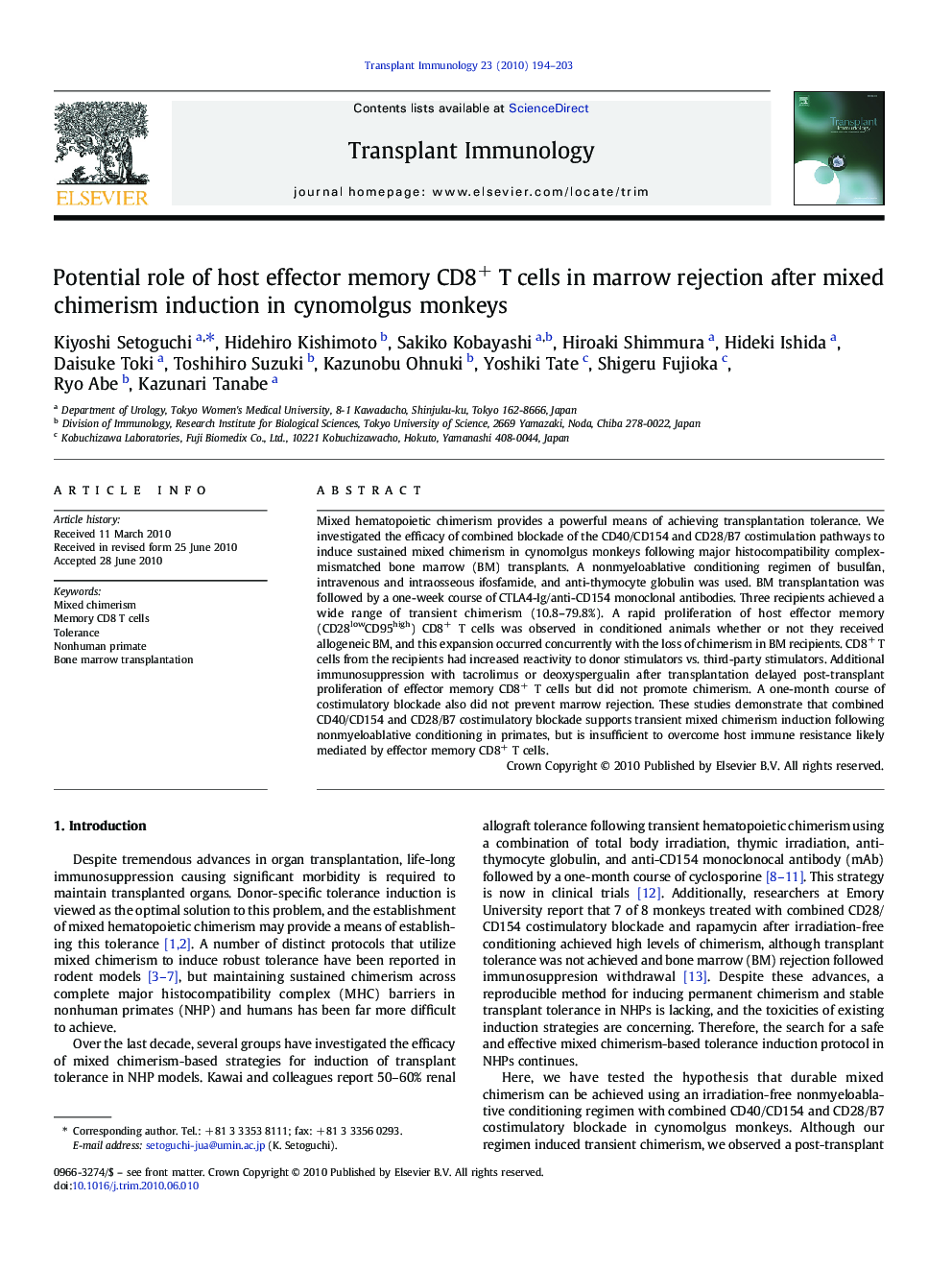| Article ID | Journal | Published Year | Pages | File Type |
|---|---|---|---|---|
| 3392346 | Transplant Immunology | 2010 | 10 Pages |
Mixed hematopoietic chimerism provides a powerful means of achieving transplantation tolerance. We investigated the efficacy of combined blockade of the CD40/CD154 and CD28/B7 costimulation pathways to induce sustained mixed chimerism in cynomolgus monkeys following major histocompatibility complex-mismatched bone marrow (BM) transplants. A nonmyeloablative conditioning regimen of busulfan, intravenous and intraosseous ifosfamide, and anti-thymocyte globulin was used. BM transplantation was followed by a one-week course of CTLA4-Ig/anti-CD154 monoclonal antibodies. Three recipients achieved a wide range of transient chimerism (10.8–79.8%). A rapid proliferation of host effector memory (CD28lowCD95high) CD8+ T cells was observed in conditioned animals whether or not they received allogeneic BM, and this expansion occurred concurrently with the loss of chimerism in BM recipients. CD8+ T cells from the recipients had increased reactivity to donor stimulators vs. third-party stimulators. Additional immunosuppression with tacrolimus or deoxyspergualin after transplantation delayed post-transplant proliferation of effector memory CD8+ T cells but did not promote chimerism. A one-month course of costimulatory blockade also did not prevent marrow rejection. These studies demonstrate that combined CD40/CD154 and CD28/B7 costimulatory blockade supports transient mixed chimerism induction following nonmyeloablative conditioning in primates, but is insufficient to overcome host immune resistance likely mediated by effector memory CD8+ T cells.
